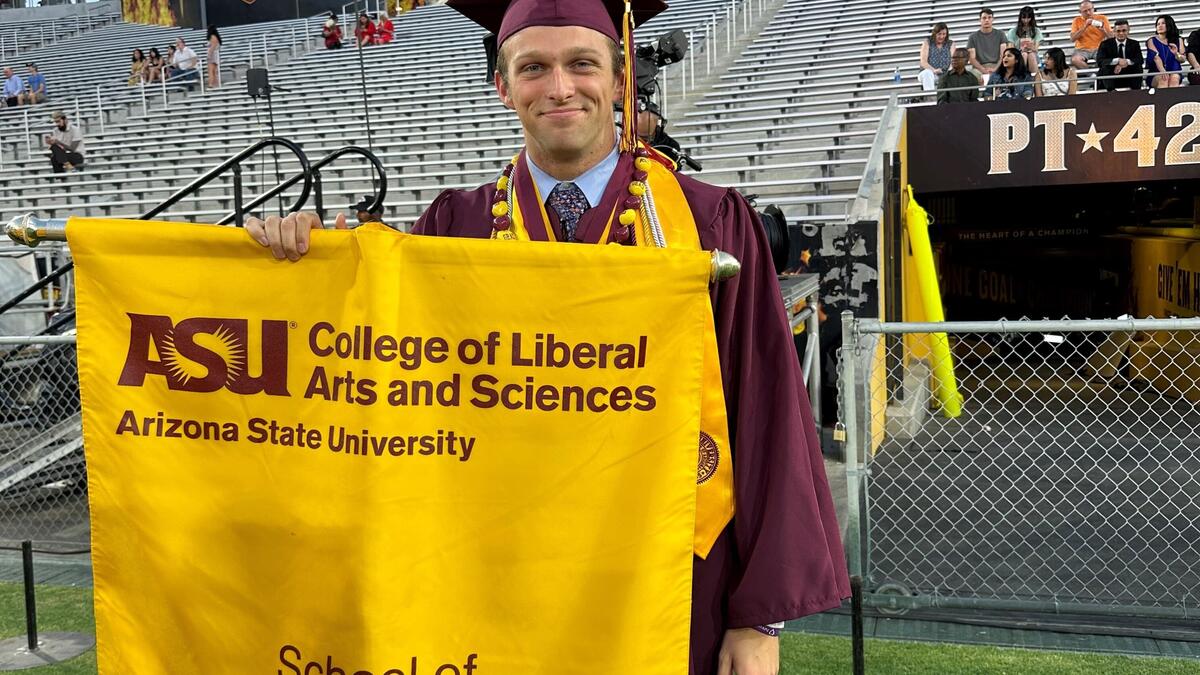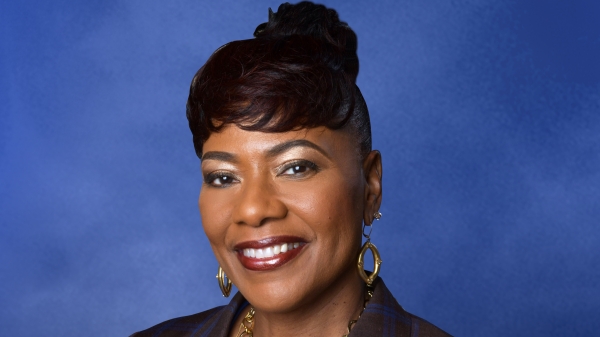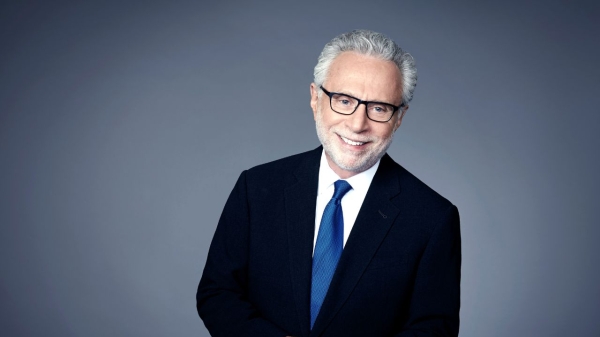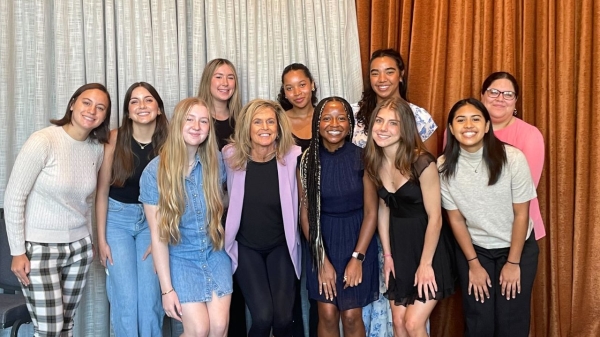Dean's Medalist to pursue career at American Enterprise Institute in Washington, D.C.

Spring 2023 Dean's Medalist Joe Pitts
Editor's note: This story is part of a series of profiles of notable spring 2023 graduates.
While Joe Pitts was already on a path toward policymaking and leadership through his internship at Congresswoman Debbie Lesko's office in the summer of 2019, it wasn't until a fellow Sun Devil recommended a class that this path truly began to develop.
"Cameron Decker (the incoming congressional intern taking over the role) encouraged me to delay taking my introductory communications class, and convinced me to take Faith and Reason: The Trial of Galileo (offered through Arizona State University's School of Civic and Economic Thought and Leadership) with him and some other friends, taught by Dr. Karen Taliaferro," Pitts said.
"The course opened my mind to the wonder of liberal education, and to the investigation of deep, intriguing and lasting human questions about the purpose of man, the tensions between science and religion, and the nature of the universe itself. These questions, I soon learned, were worth the often arduous debates, readings and essays."
Fast-forward to this spring, and Pitts has graduated as the Dean's Medalist for the school after double-majoring in management and in civic and economic thought and leadership. He is planning on embarking on a journey to Washington, D.C., for a position as a research assistant at the American Enterprise Institute focusing on education policy for two years.
Here, he speaks about his journey at ASU and exciting next steps in the nation's capital.
Question: Why did you choose ASU?
Answer: Arizona State University offered me far more financial assistance than any other university I applied to. Raised by a single mother with little money saved for college, I am very grateful to ASU for providing me with both merit- and needs-based scholarships.
Additionally, I am very intrigued by President Michael Crow's vision to forge a "New American university," which is both high quality and inclusive. I am very critical of the concentration of brainpower at a select few colleges on the East and West coasts and believe that ASU — and its incorporation of rigorous schools like the School of Civic and Economic Thought and Leadership — can be a model for the nation.
Q: Which professor taught you the most important lesson while at ASU?
A: Despite having a litany of outstanding professors, the most impactful class I've taken at ASU was CEL 475: Statesmanship and American Grand Strategy, taught by the School of Civic and Economic Thought and Leadership's director, Dr. Paul Carrese.
The course introduced me to dialectical thinking and the complex nature of both foreign policy and reality itself. This was primarily accomplished through a close reading of Thucydides' "History of the Peloponnesian War," and the juxtaposition between the seafaring, imperial and innovative Athenians and the deliberate, pious and legionary Spartans. This class — and Dr. Carrese's wisdom — have guided my thinking ever since.
Q: What’s the best piece of advice you would give to students?
A: It's quite easy to treat life like a parody. We always think that "real life" comes next — that the choices we make won't really matter until we enter "real life." Enjoy college, but recognize that "real life" has already begun. Connections you make during your college years will be lifelong and will shape not only how you view the world, but the kind of family you raise, the sort of life you lead and the career you embark on. Be purposeful about most every action you take.
Q: What was your favorite spot for studying, meeting friends or just thinking about life?
A: Mary College off of University and College Avenue is a hidden gem. An old church converted into a library (the Catholic church — the ASU Newman Center — is now right next door) provides a quiet study space with plenty of new friends to make along the way. This goes without mentioning the bounty of wonderful books they keep on site!
Q: What are your plans after graduation?
A: I will be moving to Washington, D.C., to work as a research assistant in education policy at the American Enterprise Institute.
Q: What motivates you to succeed in your work?
A: I am motivated by the example of my mother, who raised me alone while going to graduate school and pursuing social work. I am also motivated by the future family I hope to have, and the promise that I'll be able to provide for them and set up my children for a successful life.
At my core, at the center of these motivations, is my belief that my ultimate purpose is not to serve myself, but to serve God and others — that true happiness comes not from constantly seeking to satisfy my appetite, but from giving of myself to others. I seek to be able to offer my life's work up to God, and for him to tell me, "Well done, good and faithful servant." I've still got plenty of work to do, and I'm not going to get anywhere without Jesus at my side.
More Law, journalism and politics

Peace advocate Bernice A. King to speak at ASU in October
Bernice A. King is committed to creating a more peaceful, just and humane world through nonviolent social change.“We cannot…

CNN’s Wolf Blitzer to receive 41st Walter Cronkite Award for Excellence in Journalism
Wolf Blitzer, the longtime CNN journalist and anchor of “The Situation Room With Wolf Blitzer,” will accept the 41st Walter…

Cronkite School launches Women Leaders in Sports Media live-learn program
Women in a new sports media program at Arizona State University got a solid game plan from a sports veteran at an Aug. 20 welcome…